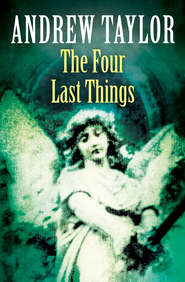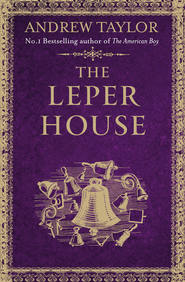По всем вопросам обращайтесь на: info@litportal.ru
(©) 2003-2024.
✖
The Silent Boy
Автор
Год написания книги
2018
Настройки чтения
Размер шрифта
Высота строк
Поля
‘He ran away and went to an old servant’s. She brought him a moment ago.’
‘So was he with his mother when—’
Fournier interrupts: ‘I don’t know. He was covered in blood when he turned up at the old woman’s house.’
‘It is of the first importance that we discover what happened. Where is the servant? She must know something.’
‘She ran off as soon as we came through the gate.’
The men are talking as if Charles is not there. He might be invisible. Or he might not even exist at all. He cannot grasp this idea. Nevertheless, part of him quite likes it.
‘Come here, boy,’ says the Count.
Charles steps up to the desk. He makes himself stand very straight.
‘What happened at your house that night? The – the night you ran away?’
Charles does not speak.
‘Don’t be shy. I can’t abide a timid boy. Answer me. Who else was there? I must know.’
‘The woman said he simply won’t speak,’ says Fournier. ‘No reason why he shouldn’t, of course – he’s perfectly capable of it. I remember him chattering away ten to the dozen.’
‘Answer me!’ the Count roared, rearing up in his chair. ‘You will answer me.’
Tears run down Charles’s cheeks. He says nothing.
Fournier shifts his weight from his left leg. ‘Give the lad time to get his bearings,’ he suggests. ‘Gohlis can see him.’
‘We don’t have time for all that,’ the Count says. He adds rather petulantly, ‘Anyway, he’s not some lad or other – his name is Charles. I should know.’ He beckons Charles closer and studies the boy’s face. ‘Were you there? Did you see what happened to—’
‘My friend, I think this—’
The Count waves Fournier away. ‘Did you see what happened to your mother? Did you see who came?’
Charles stares at the pistol on the pile of papers. Is it loaded? If you cocked it and put it to your head and pulled the trigger, then would everything stop, just like that? Everything, including himself?
‘It is most important that you tell us,’ the Count says, raising his voice. ‘A matter of life and death. Answer me, Charles. Who was there?’
But Charles is still thinking about the pistol. If he shot himself, would St Peter take one look at him and send him down to the fires of hell? Or would there simply be nothing at all, a great emptiness with no people in it, living or dead?
‘Oh for God’s sake!’ the Count snaps.
The boy recoils as if he has been slapped.
‘Very well, then.’ The Count tugs the bell pull behind him. ‘We’ll talk to him when he’s past his absurd shyness. Someone will look after him and give him some food.’
Fournier rests a hand on Charles’s shoulder. ‘But what about later? If we leave?’
‘Then he comes with us.’ Monsieur de Quillon bends his great head over his papers. ‘Naturally.’
Chapter Three (#ulink_1fe6c71c-82aa-5a69-adce-6e7087e10acf)
Charles is placed in the care of an elderly, half-blind woman. She lives in a room under the roof over the kitchen wing. Opening out of her chamber is a smaller one, which has a barred window. This is where Charles sleeps.
On the second night, he has bad dreams and he wets the bed.
On the third day, Monsieur Fournier summons him. He is in a salon overlooking the great courtyard at the heart of the Hotel de Quillon.
He is not alone. Dr Gohlis is there. He is another gentleman who used to call on Maman in the old days. He is young and stooping, a German from Hanover. He has cold hands.
In heavily accented French, the doctor asks Charles his name, and Charles does not answer. He asks Charles how old he is. Then he asks exactly the same questions in English and German, and all the while Charles stares out of the window at the weeds in the courtyard and imagines the words rising into the sky like startled birds.
Dr Gohlis examines him, looking at his teeth and poking at his belly with his forefinger. He walks behind Charles and claps his hands, making Charles twitch.
‘There is no physical cause for his silence that I can see. Everything is perfectly normal,’ he says. ‘You tell me he eats and moves his bowels. I could try purging or bleeding, but I doubt it would answer.’
‘He has sustained a great shock,’ Fournier says, throwing an unexpected smile at Charles. ‘Could that have disturbed his faculties and made him mute?’
‘Indeed, sir – that may very well be the case. If the hypothesis is correct, then it follows that the best course of treatment may be another shock. If one shock has removed his powers of speech, then a second may restore them.’
‘They say he wet the bed the other night.’
‘Really? Was he beaten for it?’
‘I do not know.’
‘If it happens again, I would advise it, for his own good. He will achieve nothing without discipline.’
‘Thank you, Doctor,’ Monsieur Fournier says after a moment. ‘I won’t detain you any longer.’
Dr Gohlis bows and leaves the room. He does not look at Charles, who is still standing by the window.
As the door closes, Fournier opens a bureau. He takes a sheet of paper from one of its drawers and a quill from another. He puts them on the flap and uncovers the inkstand. He places a gilt chair in front of the bureau.
‘Sit, dear boy. Take the quill.’
Charles obeys. He dips the pen in the ink without being asked.
‘Good,’ says Fournier. ‘Your mother told me that you are an apt student. Pray begin by writing your name.’
Charles bends his head. He writes. The quill scratches on the heavy paper.
‘Now write my name.’
Charles writes.
‘Excellent. And now – write the names of those who visited your mother in your cottage in the Rue de Richelieu.’











